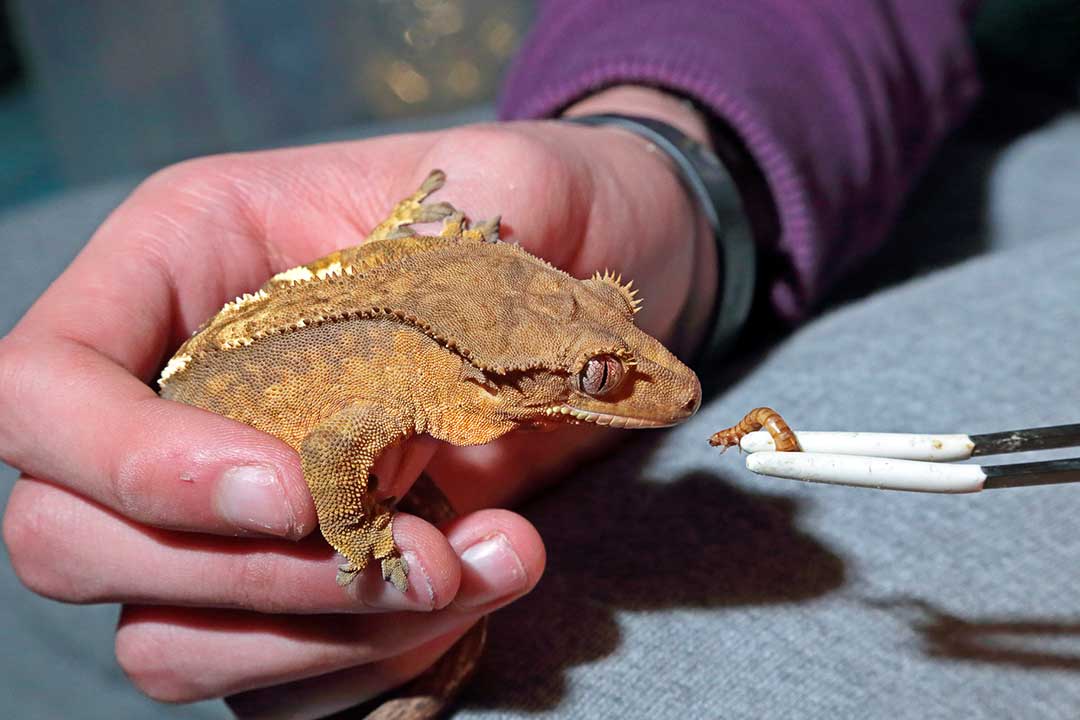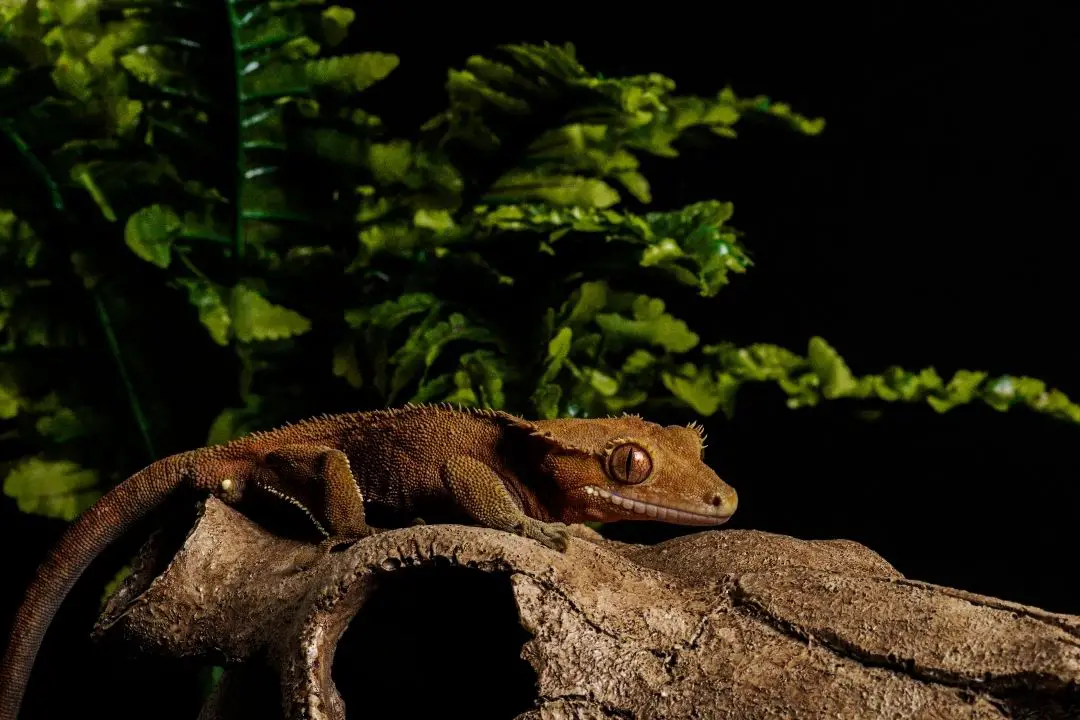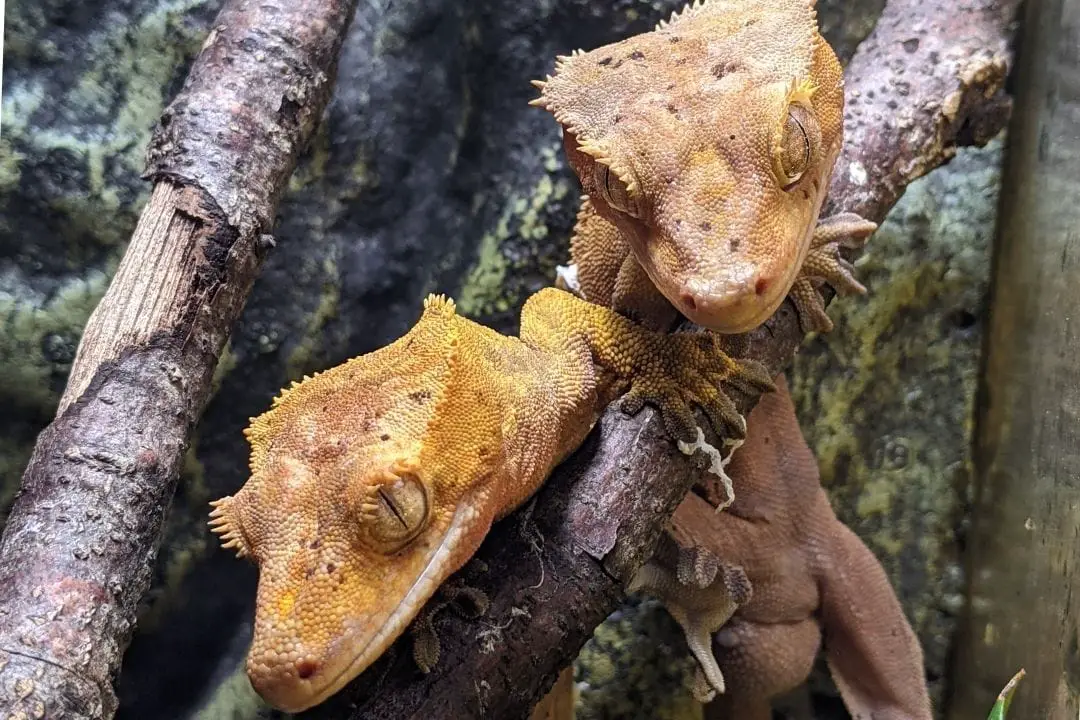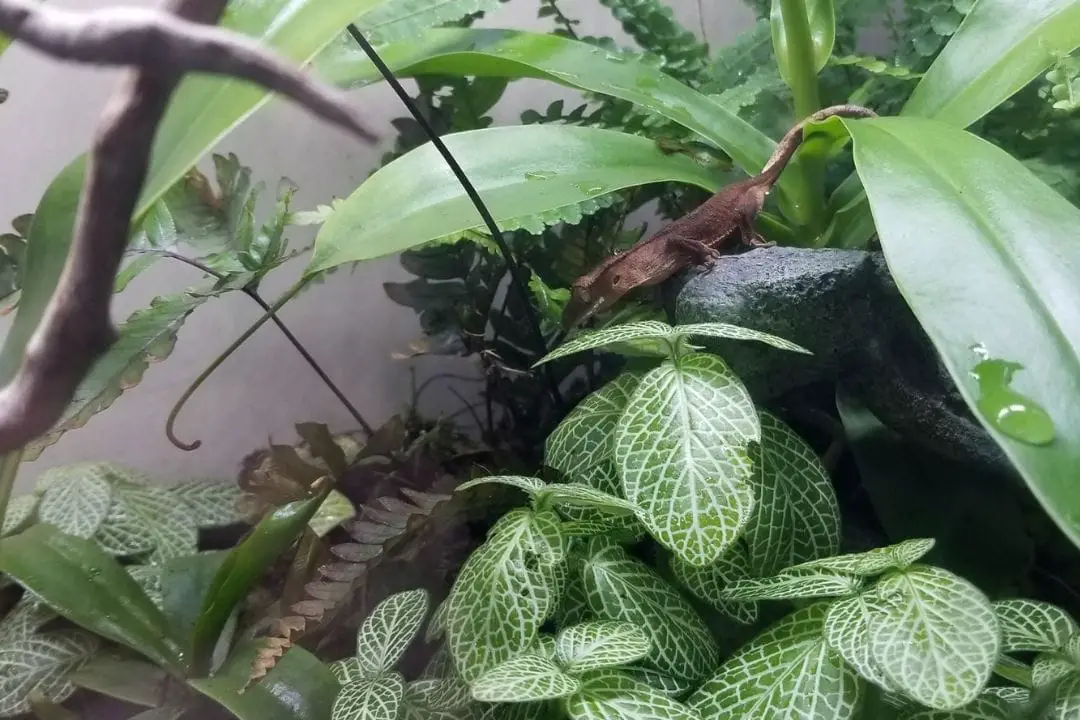Crested geckos (Correlophus ciliatus) are great little lizards that tend to be very hardy.
This makes them a great choice for new reptile keepers.
This doesn’t mean that they can’t have problems. If your crested gecko is refusing to eat, there are a few reasons why they may be refusing food.
Here are some things you should check.
I highly suggest making a weekly weighing part of your care for your gecko. Once you get an idea of its normal weight, you can move to monthly weightings.
Be sure to use a scale with the ability to zero out containers and make sure it displays in grams.
If you notice your gecko is losing weight or seeming lethargic, please head to your reptile vet.
For a complete guide to enclosure setup, feeding, daily care and breeding,
check out my Crested Gecko Care Sheet
1. Your Gecko Needs to Adjust
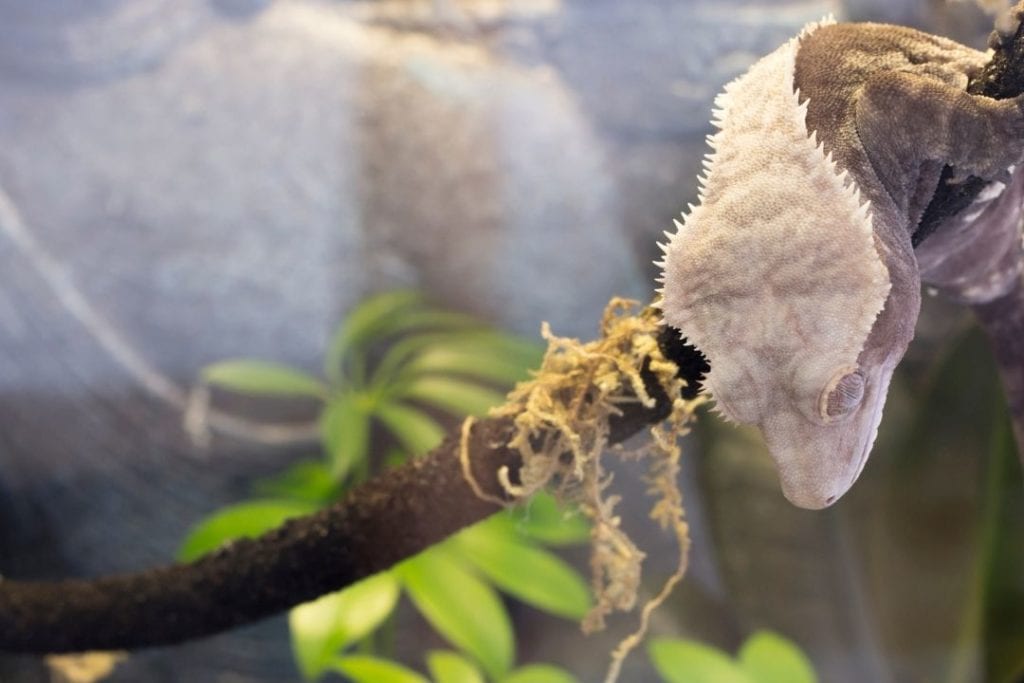
Most reptiles will refuse to eat when they are in a new home. If you just brought home your gecko, it may not eat for around 2 weeks to a full month while it gets used to its new home.
You should leave it alone so it can learn that its new home is safe. Only go in to clean until you get your gecko eating.
If you recently moved or upgraded the enclosure, your gecko will also need some time to adjust. You should minimize handling even if your gecko enjoys spending time outside.
Once your gecko is eating again, you can slowly work back up to your normal handling schedule.
2. Parasites
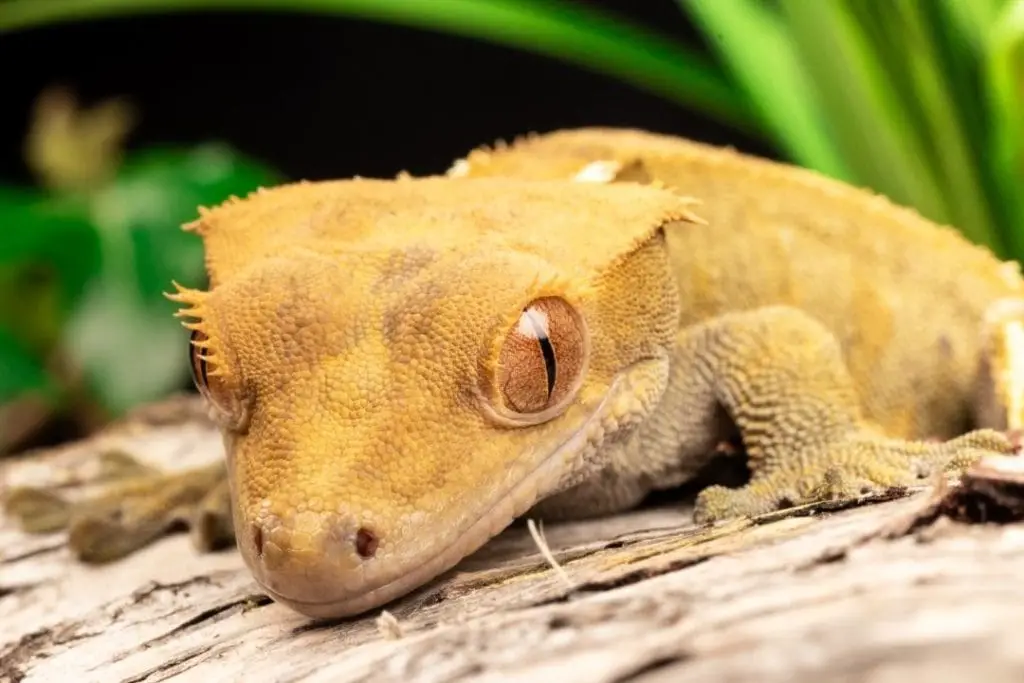
Another thing that may cause a loss of appetite is parasites. New geckos can have parasites or they may have come in on feeder insects.
If your gecko is losing weight or loses appetite, it needs to see the vet.
Try to collect any poop you can find for a fecal test, but a gecko that is refusing to eat will likely not have enough in its body to even produce feces.
Ask your vet for advice and have the gecko checked immediately.
3. Stress
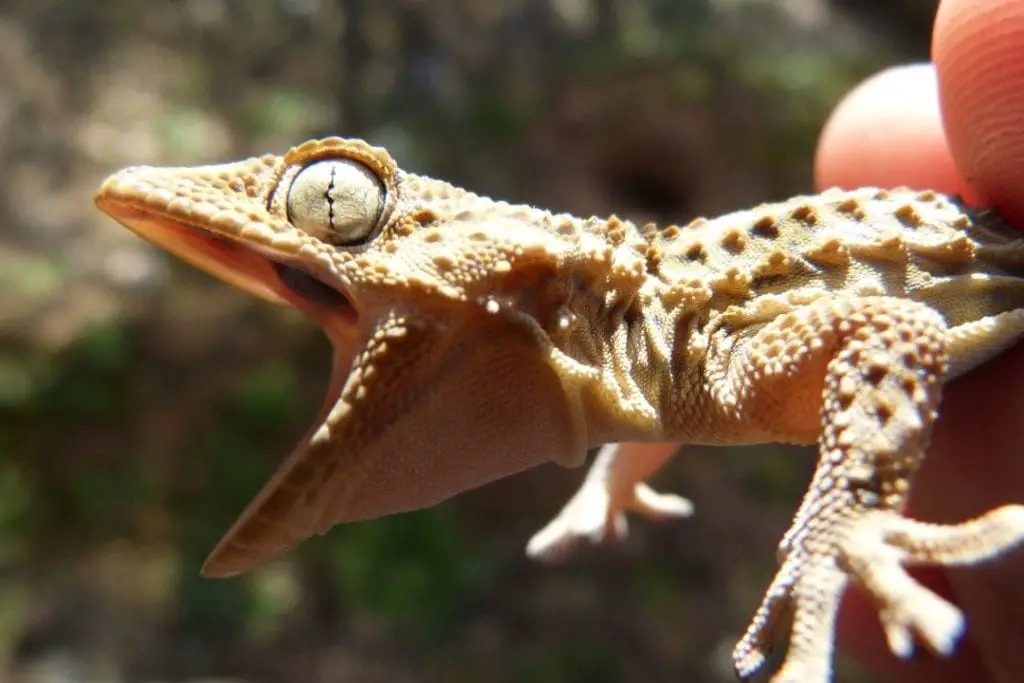
Stress will put any animal off its food. Stress can come from being in a new place, having a new cage mate, breeding, or changes in your home.
A lack of appetite is one of the big signs of stress.
Check for things that can stress your gecko like an improperly sized enclosure, not enough hides, bullying from other geckos, or too much handling.
If you are not breeding your geckos, house them alone and give your gecko plenty of places to hide and relax.
Co-habiting geckos is not easy and bullying is common if the animals are different sizes or if multiple males are in one enclosure.
If your home is noisy or busy, try to place their enclosure in a quieter and more private room. If your enclosure is glass, use a background to cover three sides and give your gecko more privacy.
Make sure your gecko has appropriate shelter, and to provide plants for your crested gecko (artificial or live plants) to create a safe environment.
4. Temperature Problems
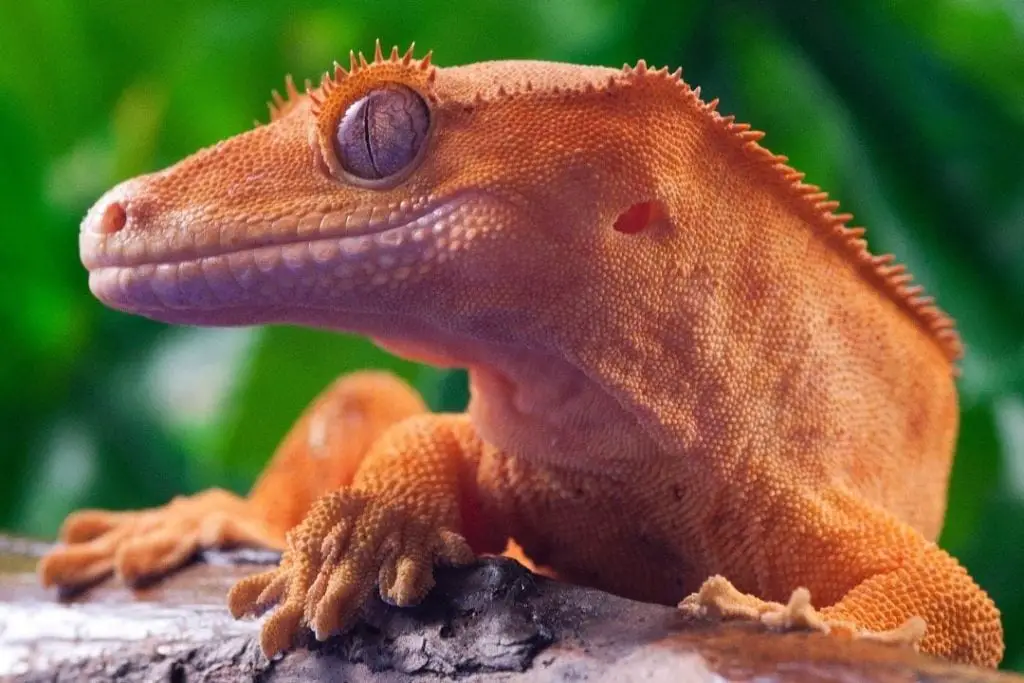
Crested geckos are ectotherms. They cannot maintain their own internal body temperature and rely on warm and cool areas in their environment to regulate their internal temperature.
They cannot digest if they are too cold. If they eat and experience a temperature drop, the food may even rot inside their stomach.
A cold gecko will refuse to eat.
A gecko that is too warm may also refuse to eat. Geckos can die from overheating, so be sure the temperatures are in the proper range by checking all hides and the basking spot with your temperature gun.
5. Humidity
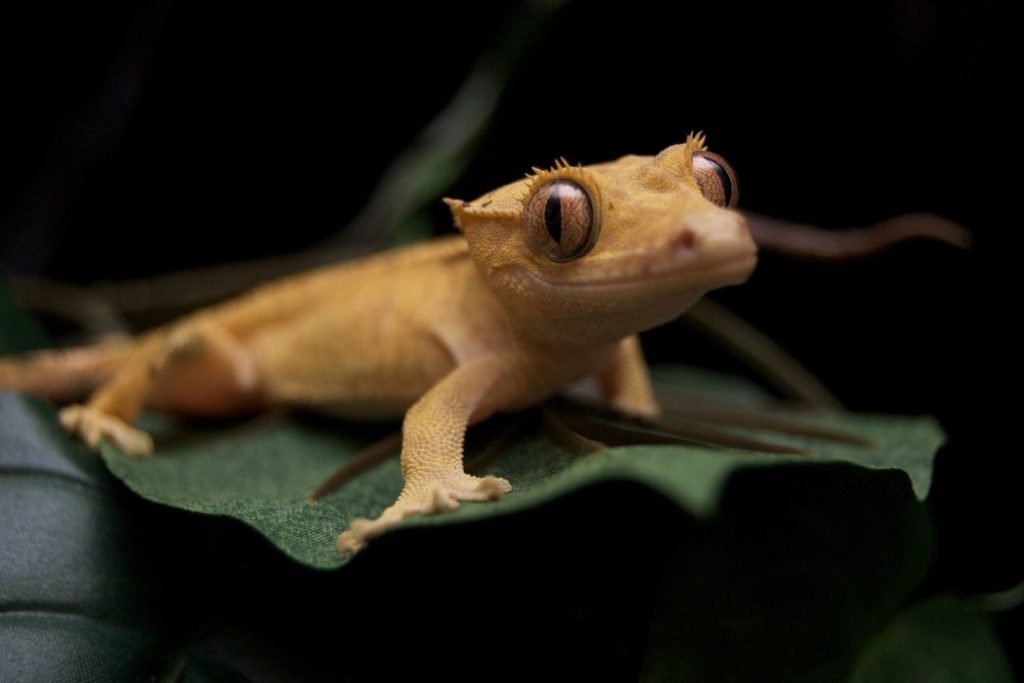
Geckos that are kept in an enclosure that is too dry will become dehydrated very easily. Even if they have access to a water dish and water from their misting, they will still be likely to lose moisture to dry air.
Always use digital hygrometers to measure the humidity. If it is too under about 50%, mist the enclosure. If the humidity always drops quickly, you may want to cover about half of any screens to help hold in more humidity.
Changing the substrate will also help keep the humidity up and use a larger water dish. If the enclosure becomes too humid too often, your gecko may suffer from respiratory problems.
This is very serious and needs immediate care. Sick geckos will refuse to eat.
6. Illness
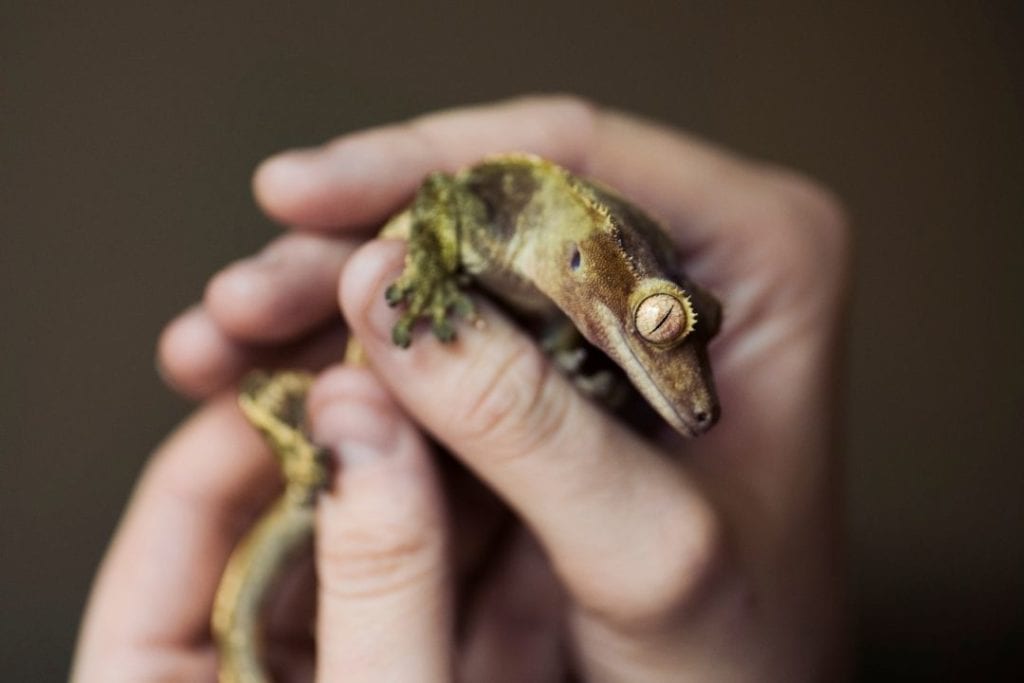
All animals can get sick. Loss of appetite is a common symptom for many illnesses your crested gecko can get.
If you notice a loss of appetite and any unusual symptoms like strained breathing or changes in behavior, take your gecko in immediately.
Many illnesses in crested geckos are very survivable if you get them treated promptly.
Many infections will cause a loss of appetite and can be treated with an appropriate antibiotic prescribed by your vet.
7. Impaction
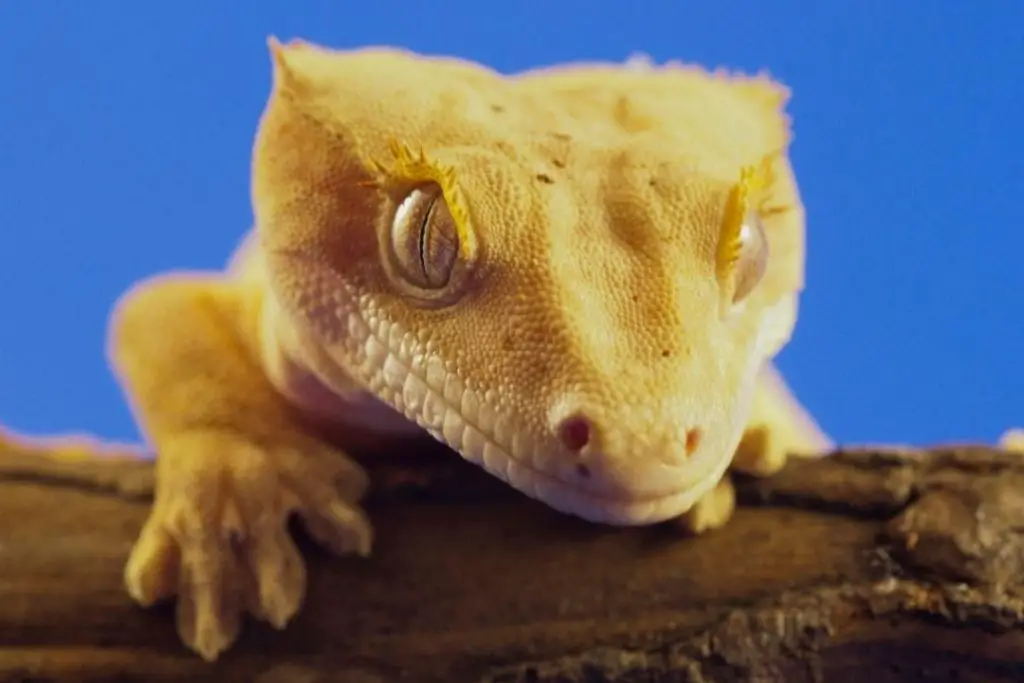
Impaction is when your gecko has a blockage in its guts. This prevents food or waste from continuing past the blockage.
You will notice that your gecko isn’t pooping after a bit. Your gecko will also stop eating since it can’t move food down its digestive tract.
It can be caused by ingesting too much substrate, feeding insects that are too large or have too much chitin, or dehydration. If you see your gecko suddenly gain a few grams or have a swollen belly, it could be impaction. Increasing water intake can sometimes help, but it is best to consult your vet. Once your gecko is pooping successfully, keep it on easy-to-digest food until it is recovered fully. This means only very soft insects and mix more water into their meal powder.
8. Shedding
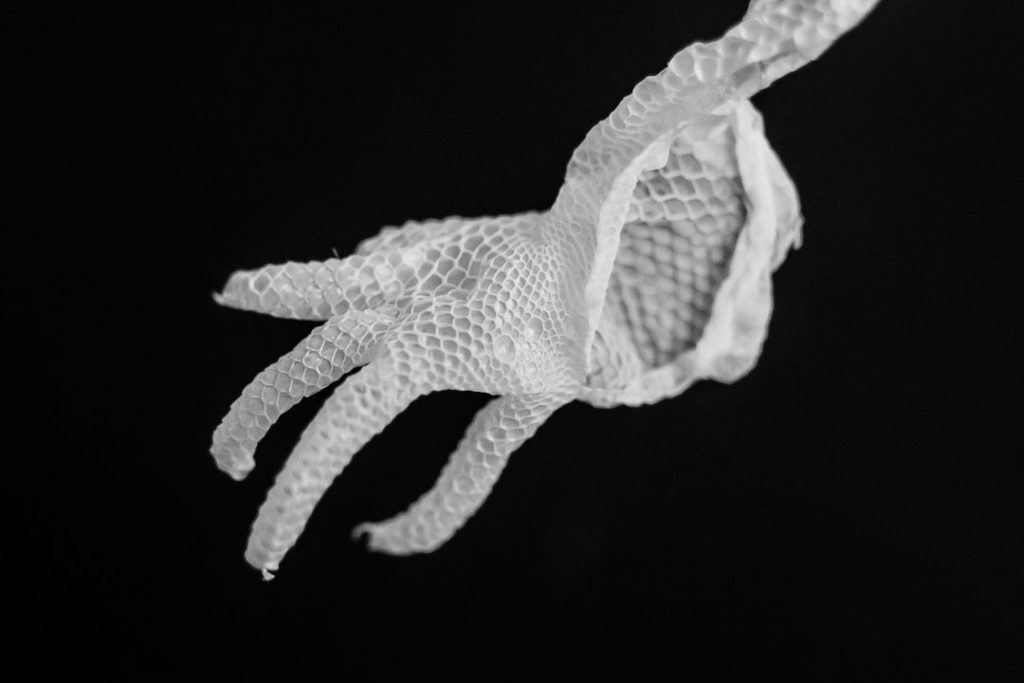
Many geckos will refuse to eat when they are shedding.
You will notice your gecko looks a bit dull. Increase the humidity in the enclosure and offer a humid hide.
Keep an eye on your gecko to see if it starts to shed. It should be hungry again once it has successfully shed its skin.
9. Life Changes
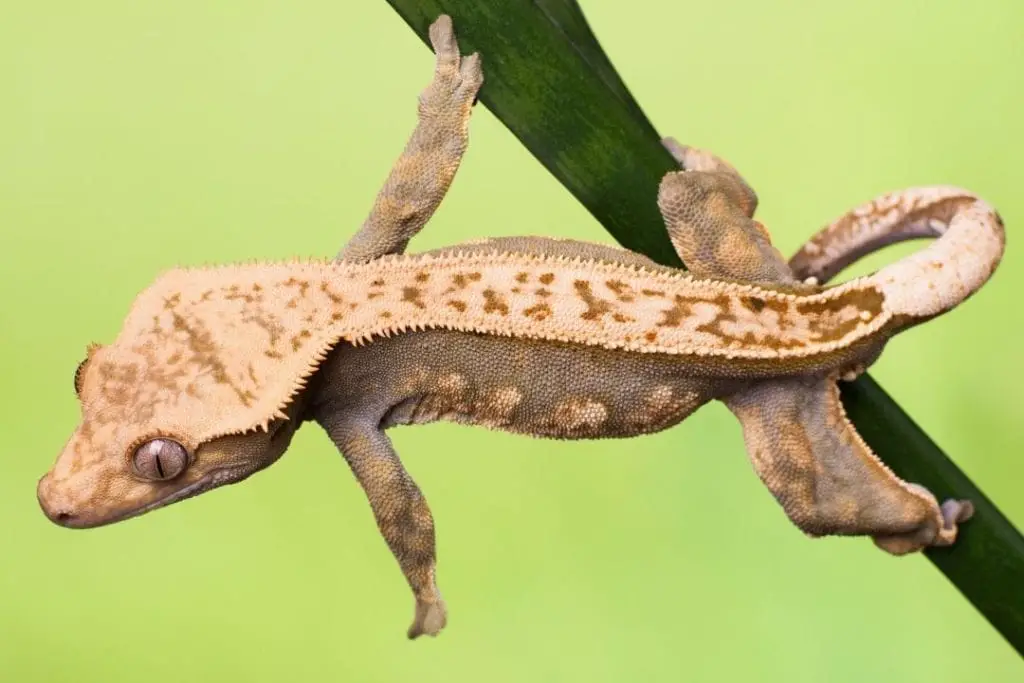
Juvenile geckos that are still growing tend to have the biggest appetites. Once your gecko reaches maturity, its appetite may go down.
Some breeding geckos may lose interest in food for a bit. A female that is about to lay her eggs may also refuse to eat until she has laid them.
Finally, elderly geckos may have reduced appetite. Sometimes they may struggle to reach their food or need help with feeding. Ask your vet for advice once your gecko is showing signs of old age.
Conclusion
There are many reasons why a crested gecko may refuse to eat. If your gecko ever suddenly refuses to eat or is losing weight, it is time to head to the vet.
If you have any questions or comments, please leave them below.
